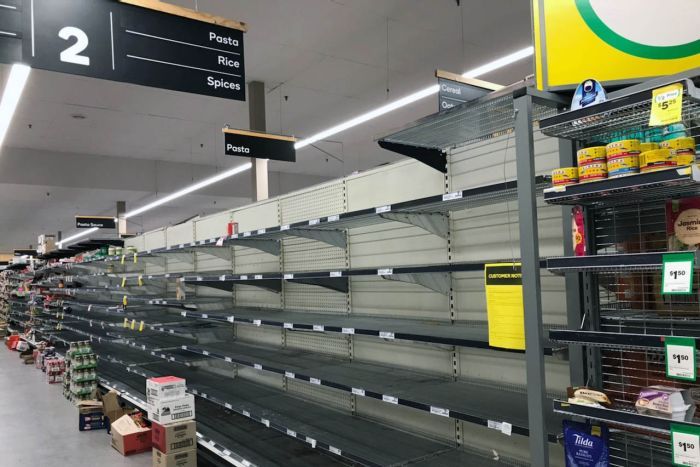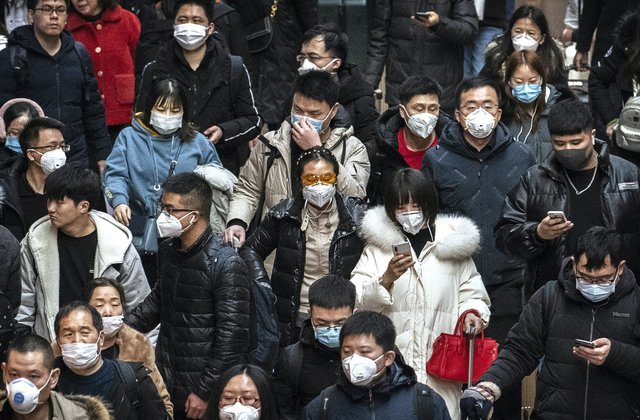A group of more than a dozen young people entered the Grand Canyon on rafts before the pandemic struck the United States. Three weeks without contact with the outside world, they were immediately confronted at the terminus of their trip with the new reality. Childishly, they were also confronted with envy.
Moments after they pulled their rafts out, a guy named Blane, working for a rafting company out of Flagstaff, Arizona, approached the group.
“He gave us a look, sighed, and then launched into it,” one of group reported. “Since they’d left, the coronavirus exploded in the United States and around the world. Italy was under lockdown. The stock market was plummeting. Professional sports were suspended. Many schools were closed indefinitely. Infections were growing exponentially. Tom Hanks had it.”
“Half of us thought he was joking,” said one of the young men. But “the girls believed it right away,” recalled one of them, a nurse.

It was reported that “one rafter’s family texted that the supermarket shelves in California were bare and urged the group to stock up on rice, beans, dog food and toilet paper.
“How’d we go from paradise to hoarding rice and beans?” one rafter asked. Another searched Amazon by phone for toilet paper and saw that it wasn’t available. “That was a moment where it felt pretty real,” she said.
“We’re sitting here trying to piece the world together,” one said. “What does a toilet paper shortage mean? Why are they out of toilet paper?”
That’s become an existential question. Toilet paper, it turns out, is the key to unspooling the social, as opposed to the medical contagion in the United States.
I have a theory. I think that subconsciously, Americans know we lost the Cold War as surely as the Russians did, and connect it, as some primal, scatological level with toilet paper. Now that the poop has hit the proverbial fan, we need lots and lots of the TP to clean up.
Seriously however, the issue confronting serious people everywhere, whether in America, the Philippines, or Tanzania, is how to keep one’s heart alive if it’s been alive, and how to rekindle the flame if one has adapted to the deadness of America and the West by becoming numb.
The pundit-driven dream of a World War II style mobilization in the USA is risible. At that time, everyone shared an intense fear and hatred of an external enemy—“the Japs” and Nazis—and did their bit in the military or in factories to defeat them.
The pandemic is an enemy, if we can even anthropomorphize by calling it an enemy, from within. And we have a malicious, malevolent, incompetent boy for president who is incapable of managing this crisis.
Besides, young people are partying as if there’s no tomorrow, which is what most have narcissistically and nihilistically believed for a generation. Confronting that mindset is essential to containing Covid-19.
People in freer countries need to reflect on what kind of culture and country we want to have afterward, or the lessons learned from the pandemic will move the West and the rest closer to a Chinese type of authoritarianism.
Reports are that Mr. Xi called the virus a “major test” of China’s governance system, and hurled the country’s 1.4 billion people into an antivirus mobilization reminiscent of a Mao-style mass crusade not seen in decades.
Economists now believe the country will see its first contraction in decades, which will have knock-on effects for the global economy and could lead to a recession.
“We saw so many dark things because of the blunt force policies,” said Lan Bo, a Chinese filmmaker from Hubei who has been filming a documentary in Wuhan about the epidemic. “It was a time that showed both the wretchedness and the nobility of human nature.”

Mr. Lan, the filmmaker, said nearly everyone he encountered in the city had a friend, relative or neighbor who had succumbed to the virus.
“This was our war,” Mr. Lan said. “Everyone has seen so much that we are now numb.”
Americans have a big jump on the Chinese in the war and numbness department. Over 90% of the adults here have been numb for 25 years.
There’s no reason except our failure to understand ourselves and the human mind, and the human mind through understanding ourselves, that we cannot regularly realize, in our daily lives, a “cloud of unknowing” like the Grand Canyon rafters.
Turn off your cell phone. Listen to the rain or the flutter of the leaves. Gather undirected attention through passive observation. Learn what it means to observe without the observer.
Then you’ll return to your family, friends and the world with new insight and growing strength, which is born of solitude, not real or virtual social interaction.
Martin LeFevre
Pause, reflect, feel—Martti Talvela, O Isis und Osiris, Mozart:

